During my service as a young missionary in the South African Mission in the late 1960s and early 1970s, I was tasked by the Mission President on two separate occasions to visit Mozambique to assess the viability of opening the country for missionary work. Once when I was a District Leader in Salisbury, Rhodesia (now Harare, Zimbabwe) and another time when I was an Assistant to the President. I highly doubt that any of my input that I provided the Mission President had any impact on the opening of Mozambique to missionaries. However, today there are two LDS missions in Mozambique.
In a recent turn of events in the last few months, Mozambique has been in political upheaval and turmoil that threatens the stability of the country. Here is a summary of short news blurb on this situation.
Beginning in September 2024, the campaign for the presidency in the country began. Initially, it appeared that the opposition leader had prevailed in the election. However, the ruling party called for a recount and after the recount, the ruling parties candidate was declared the winner.
The official runner-up in the presidential vote, the Mozambican opposition leader Venâncio Mondlane, called the recount election fraud and began calling for mass protests. For the last few months, the nation has been gripped by protests that have led to vandalism, looting, and reports of heavy-handed police repression as the protests escalated into a national wave of rioting that have left scores of people dead. Mondlane left the country and was directing the calls for protest and marches from outside of the country. However, he planned to return home from self-imposed exile in the next week which could potentially exacerbates tensions in the southeast African nation.
The protests have wreaked havoc on the economy, cutting off key trade routes, curtailing energy exports to neighboring countries, and has caused an economic contraction in the final quarter of 2024, which is likely to continue in early 2025.
The big question is if there can be a negotiated settlement or will it escalate into a humanitarian crisis? – from a news article recently published.
As mentioned, there are currently two LDS missions in Mozambique with over four hundred missionaries and senior missionary couples serving in the country. On New Year’s Eve we were having dinner at our host’s apartment – the Gollaher’s – when Greg got a call. Greg and I served together in South Africa 55 years ago in what is now Zimbabwe.
A bit of background. Greg worked for Ford Motor Company early in his career and was transferred to Brazil for seven years. During his time in Brazil, he took a sabbatical from Ford to serve for three years as the Mission President in Brazil. During that time in Brazil, they both learned to speak Portuguese.
The call that Greg received while we were at their home having a quiet New Year’s Eve together was from the Area President explaining what was going on in Mozambique.
The Area President explained that because of the political unrest, a decision was made a few hour prior to the call to Greg on the evening of December 31, 2024 to remove all foreign missionaries – totaling over 120+ missionaries and senior couples and transfer them out of the country. The Area President asked Greg and Jill to take on the responsibility of being the feet on the ground in South Africa to help relocated these 120+ missionaries.
The missionaries were to be informed of their leaving Mozambique on a countrywide Zoom call on New Year’s Day. They would be told to pack everything they owned and to be ready to be picked up between 1:00 am and 4:00 am on January 2, 2025 and that they would be going to Johannesburg until further notice notice.
Greg and Jill had less than 48 hours to figure out how to house, feed, and keep these missionaries busy for the foreseeable future. Needless to say, our evening together ended shortly after the call. From that call for the next 48 hours things happened at lightning speed.
The Church’s travel department in South Africa purchased the remaining seats on commercial airlines on both Beira (now renamed Mafambisse) and Maputo the two major airports in the country to Johannesburg. Also, several chartered planes were secured to transport the remaining missionaries out of the country.
Beginning at 1:00 am on January 2nd, missionaries were picked up and taken to the airports. Beginning at 5:30 am and throughout the day missionaries began leaving the country which was somewhat challenging because the airport would be closed down for several hours at a time and reopened for flights to arrive and depart for a few hours and then be closed again. The evacuation was only for the foreign missionaries serving in Mozambique, These missionaries were from Brazil, Portugal, Angola, and the United States. Since Mozambique is Portuguese speaking as are Brazil, Portugal, and Angola it was a natural fit for young men and women from these countries to be called to serve in Mozambique. About two hundred and fifty Mozambican missionaries and the two mission leaders serving in Mozambique were not transferred out of the country and remain in Mozambique.
The Logistics of an Emergency Transfer of Missionaries
While it might not seem like a big deal to move 120+ missionaries from one country to another, nothing could be further from the truth. Things that needed to be considered were individual visas which expire at different times with ten expiring in the next 45 days. Visas entering into Mozambique can take anywhere from three to seven months to be issued….and this is during normal times. While it was not difficult to get visas to enter South Africa, the visas that are issued are tourist visas that last for ninety days and do NOT allow the holder of the visa to work during their stay – including doing missionary work. Now, you have 120+ missionaries in South Africa that can’t be engaged in missionary work. What do you have them do?
The Gollaher’s
As mentioned, Greg and Jill speak Portuguese learned while they lived in Brazil decades ago. It was fortuitous that they are here in Johannesburg serving on a senior couple mission. It made communication with Portuguese speaking missionary with no English language skills much easier to have leaders that could speak to them in their native language.
Greg was assigned the responsibility to oversee the arrival, housing, feeding, and daily activities of these missionaries from Mozambique for the next month or two until the political climate in Mozambique settles down. The type of activities that the missionaries have been involved in while in South Africa are researching family history, attending the temple, keeping in touch with the people they were teaching in Mozambique via WhatsApp, and personal study and reading. There are daily devotionals where local Church leaders, senior couples, and members from the community speak on spiritual, practical, and career oriented topics. This has been a time for these young people to think about their future and to learn how to adapt in a constantly changing world.
Time to Unwind
During the months prior to their departure the foreign missionaries in Mozambique, because of the unrest throughout the country, which included rioting, burning of buildings and vehicles, protests, and unrest, the missionaries serving in Mozambique were relegated to their apartments for weeks at a time. Now that they are in South Africa they were anxious to be involved in something useful. However, first things first.
A few days after their arrival, the missionaries were allow to go the Johannesburg Mission Training Center (MTC) and to be outside and play sports. This is the first time they have had the opportunity to be outside and exercise in several months.
Here are a few pictures of these Mozambique missionaries on their Preparation Day at the Johannesburg Mission Training Center. We were asked to help coordinate the purchasing of some items they needed from local stores and bring these to the MTC.
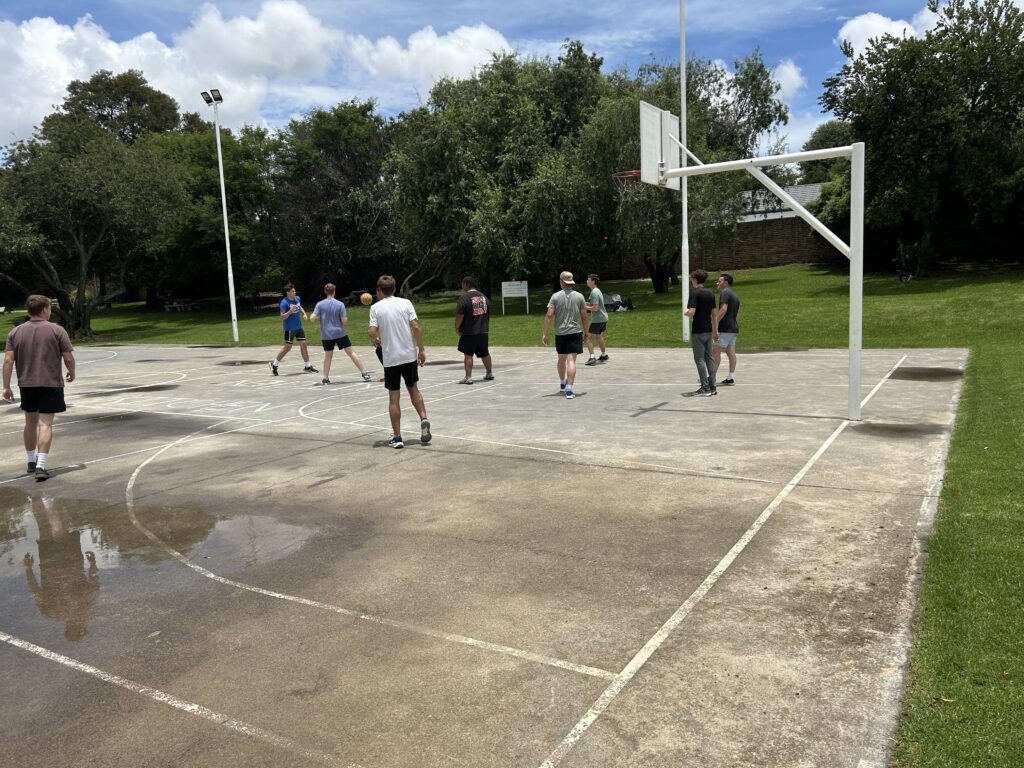
Missionaries playing basketball at the Johannesburg MTC
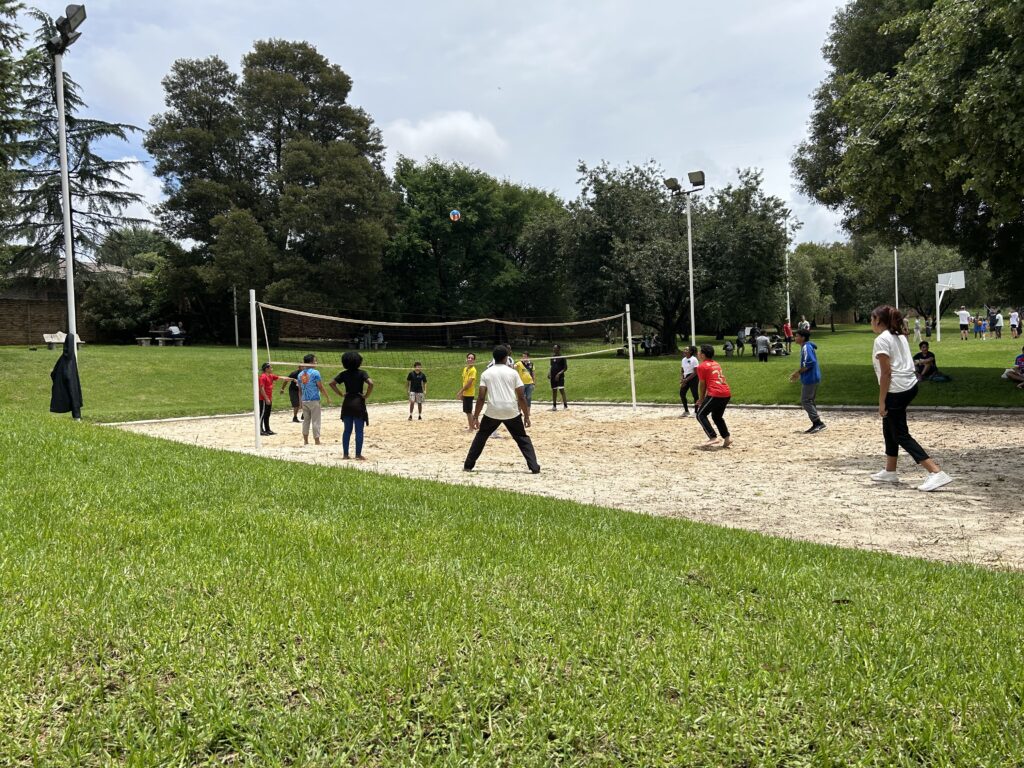
Missionaries playing volleyball- which is serious business for missionaries from Brazil
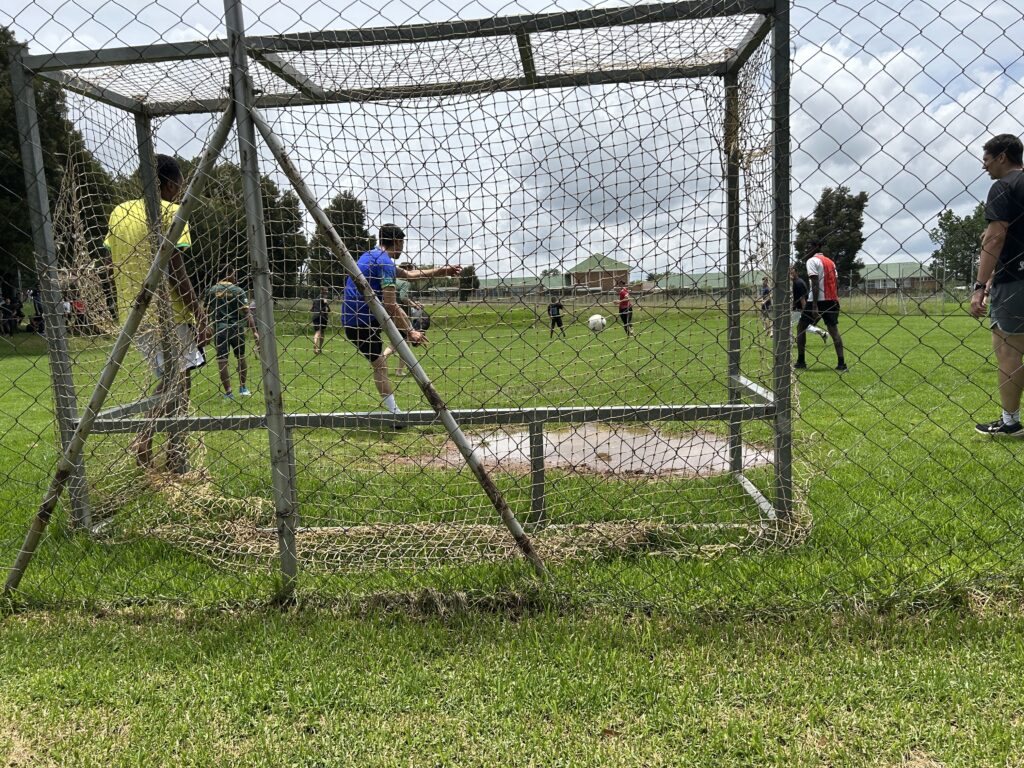
Ifyou think American football is an obsession – you have no idea how fanatically soccer is followed and played in other countries around the world including many African countries.
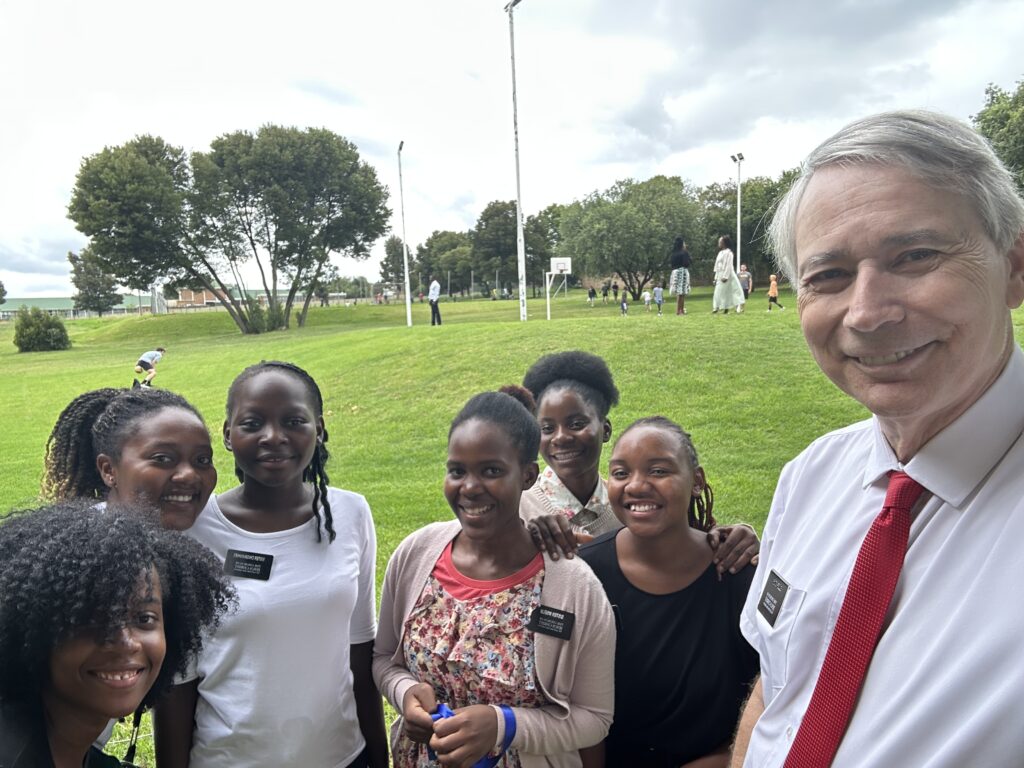
These sister missionaries are from Ghana, Angola, South Africa, and Zimbabwe and are a part of the missionaries transferred out of Mozambique.
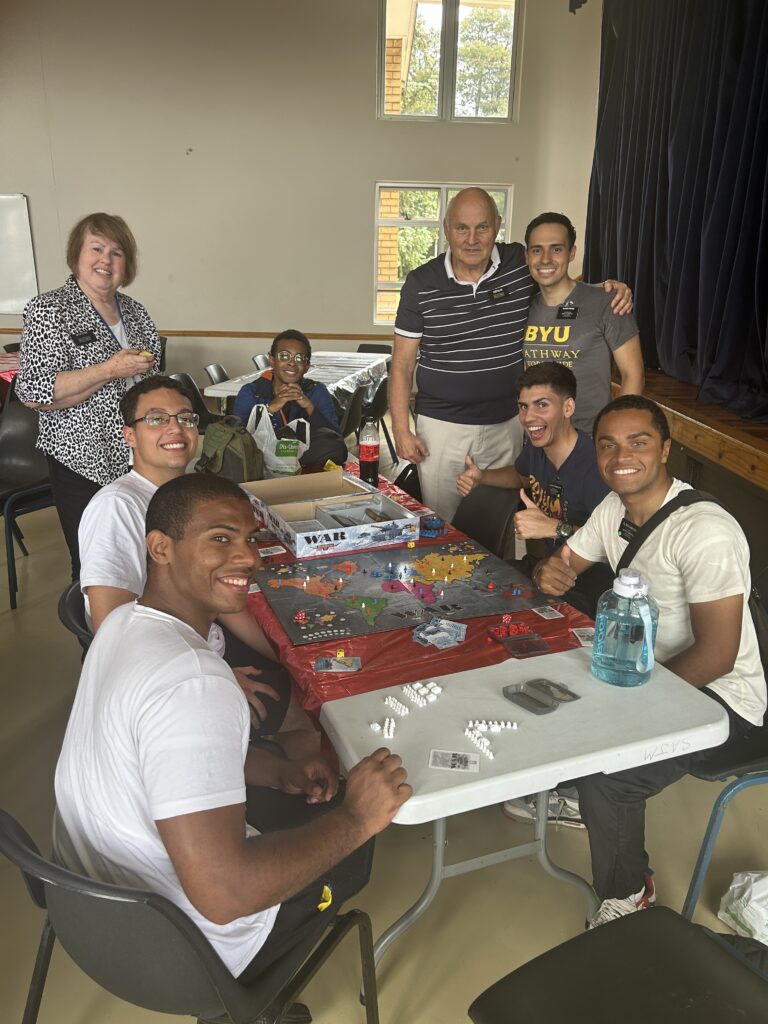
Missionaries playing War – a game of world domination – and a game that I learned to play on my mission over five decades ago….some things never change. Marcia watches over the game along with Greg Gollaher – one of my former missionary companions when I served in South Africa the first time .
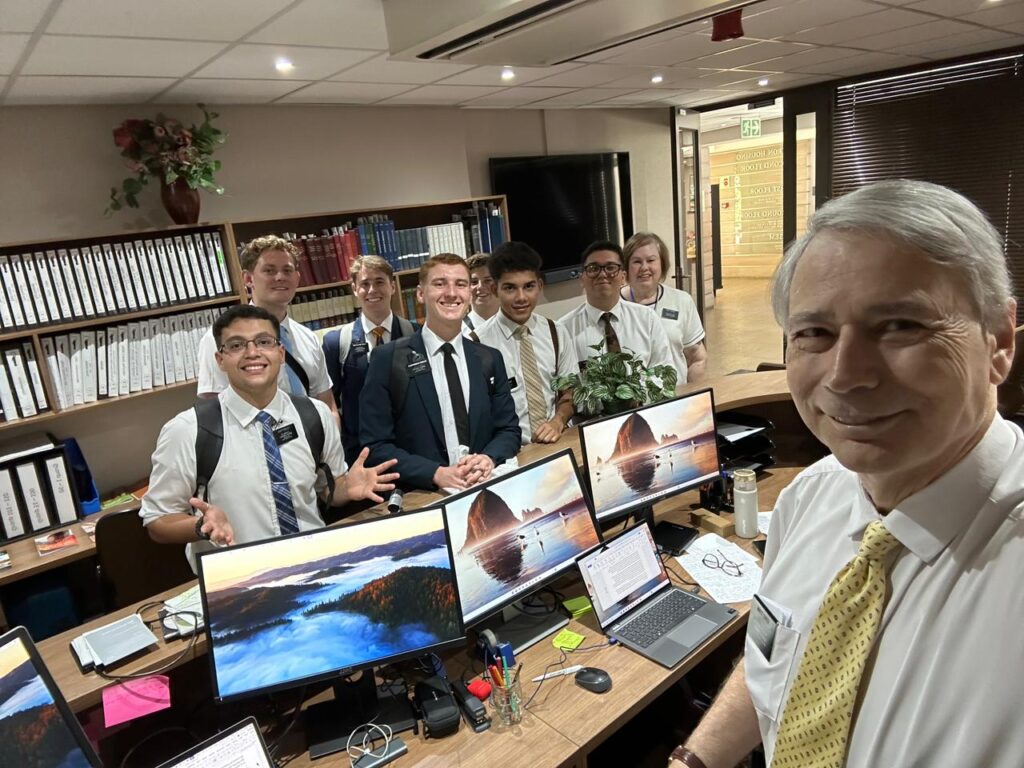
We have been involved in helping the Gollaher’s from time to time with these displaced Mozambique missionaries and have gotten friendly with many of them. They surprised us the other day when they dropped by our office to say “Hi.” These missionaries are from Brazil and the US.
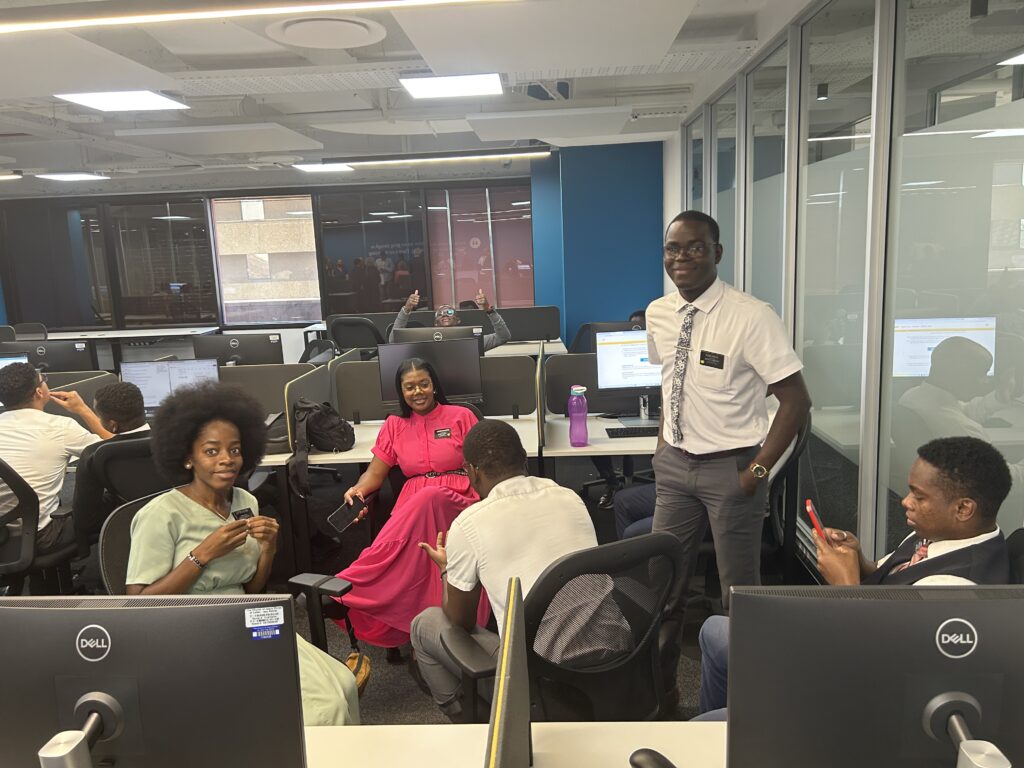
A small group of Mozambique missionaries taking a break after working on researching their family history/genealogy.
African Saints are Just as Dedicated as Filipino Saints
It was not uncommon for Filipino saints to travel for several days or on overnight bus trips to be able to attend the Manila or Cebu Temples. It is the same here. The two women members (see below) traveled with other members of their small branch in Zimbabwe (700 miles) to attend the temple staying in the temple patron housing for three days to do temple work before returning to Zimbabwe.
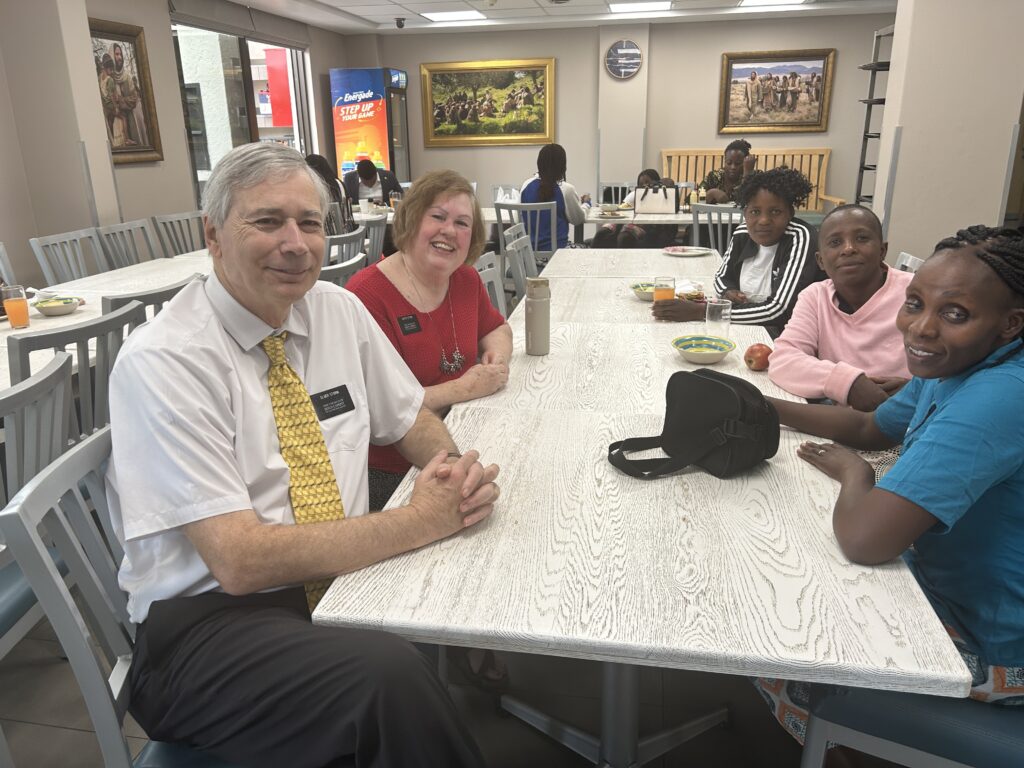
Marcia and I at lunch in the cafeteria in the Area Office which is next to the Johannesburg Temple.
The Bigger Picture
This experience of the Mozambique missionaries has caused me to reflect on the enormous logistical challenges of coordinating nearly 90,000+ missionaries throughout the world where all sorts of events (both individual and governmental) are in constant flux. The Mozambique missionary evacution has given me a much greater appreciation for the vision and organization that enables the missionary program to continually move forward.
Another facet of the missionary program is the breath of assignments filled and service rendered vs. the proselyting component of missionary work. What I learned in the Philippines, and now here in South Africa, is the enormous breath of talent of senior couples that elect to serve missions and how they are assigned to serve in many different types of assignments ranging from humanitarian, member and local leaders support, IT, finance related, administrative, legal, Church History (our calling), genealogical, temple, and a variety of other assignments that leverages the skills and talents of decades of professional and real world experience to further Heavenly Father’s work through the world.
The other thing that has become obvious to me is how serving a mission provides valuable experience and personal growth for the youth of the Church throughout the world – especially in third world countries. A mission provides valuable experiences in leadership, understanding of the larger world, and exponentially expands knowledge and interpersonal skills that will benefit these young people that serve missions in their future lives – educationally, professionally, and in their personal lives.
In countries where the Church is relatively new, missionaries that serve from these countries (such as Mozambique and other African countries) will become the future leaders in their communities, professions, and in the Church and because of the emphasis the Church puts on education they will be able to lift themselves and their families out of poverty and into a better life. Often, these opportunities are not always found or available to their non-member peers.
I am grateful to be a small part of this great work.
Some of the things we are learning….
In the Philippines, regardless of where we were in the country, I would take long walks often late a night – often not knowing anything about the areas where I would be walking. Most of the areas where I would walk were local residential areas. I rarely saw gates, fences, or other protective measures installed. While there were gated communities in the Philippines, homes outside of these gated communities rarely had walls or fences.
Here in South Africa, this is not the case. Every home in the residential area where we live has a wall or fence and with spikes or barb wire as additional deterrent from the outside world. Here are some examples of homes in the residential neighborhood near where we live and where I walk mornings and took these pictures.
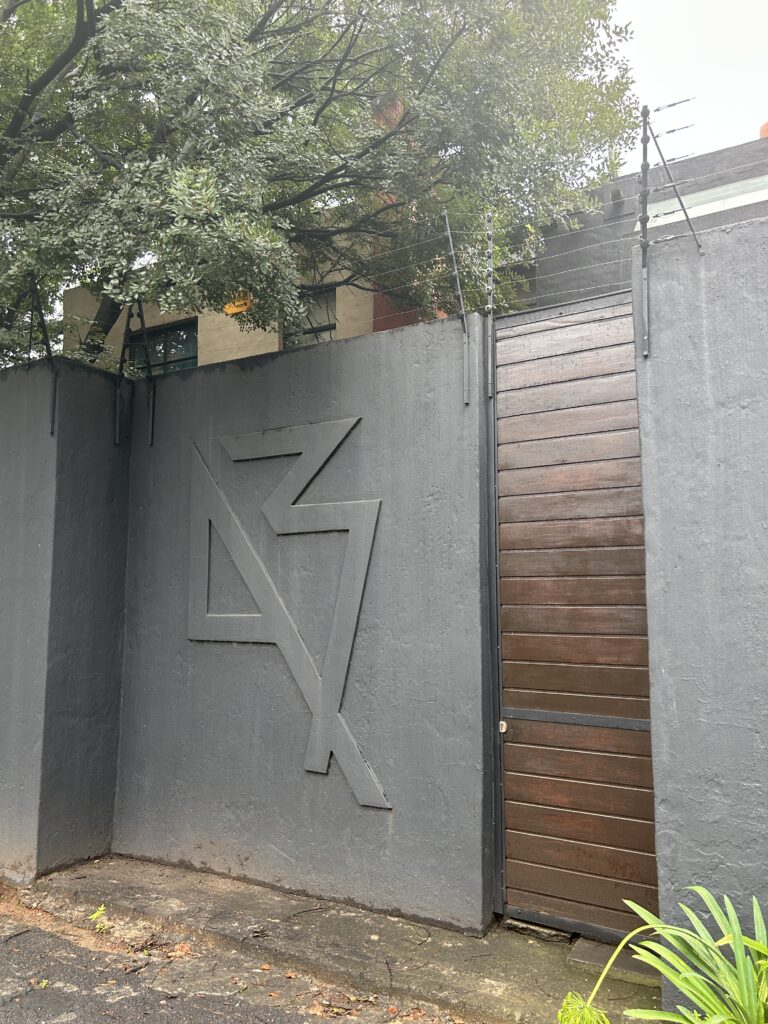
This wall is 15-20 feet high…note the electrified fence wires on top of the wall.
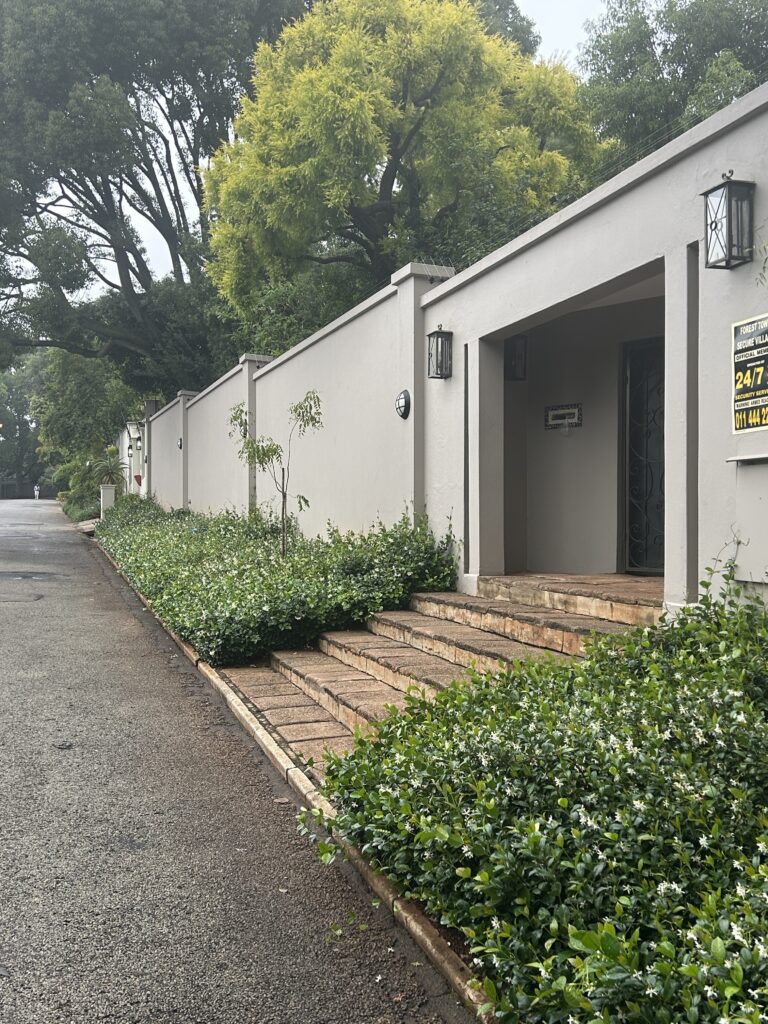
Another home with high walls, electrified wires, and note on the left – a sign of 24/7 security patrolling the area
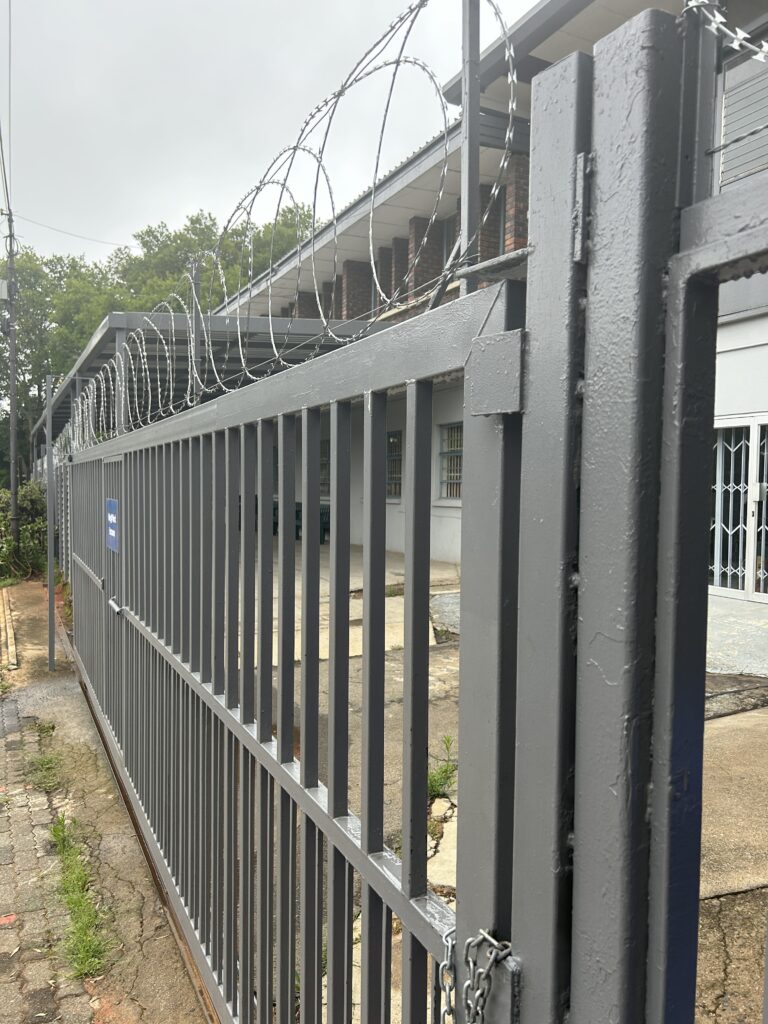
Another home with fencing and barb wire deterrent installed.
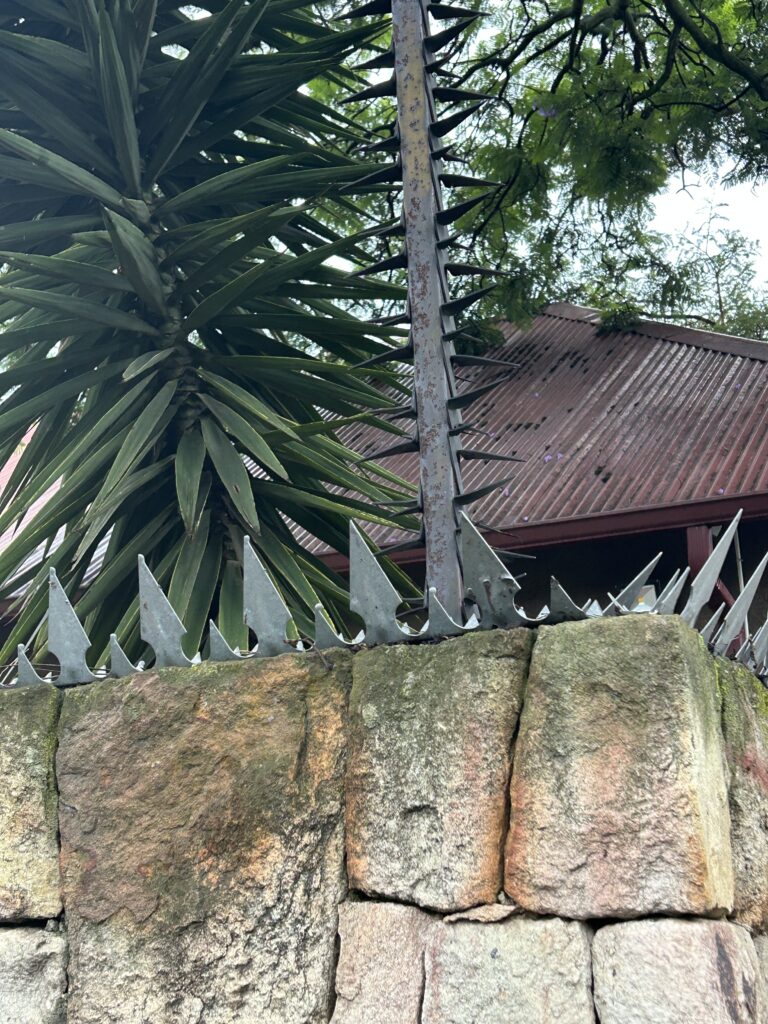
A home with a wall and metal jaded and pointed spikes.
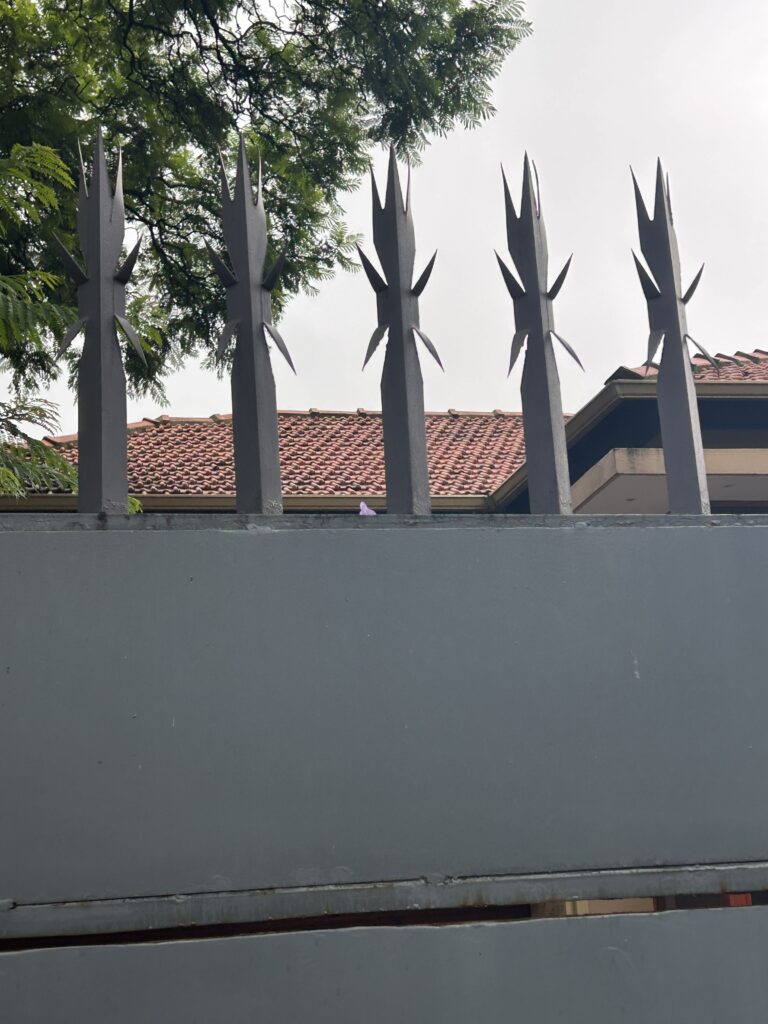
A home with a wall and very imposing metal spikes as a deterrent.

This home was protected by 20 – 30 ft walls and an electrified fence deterrent
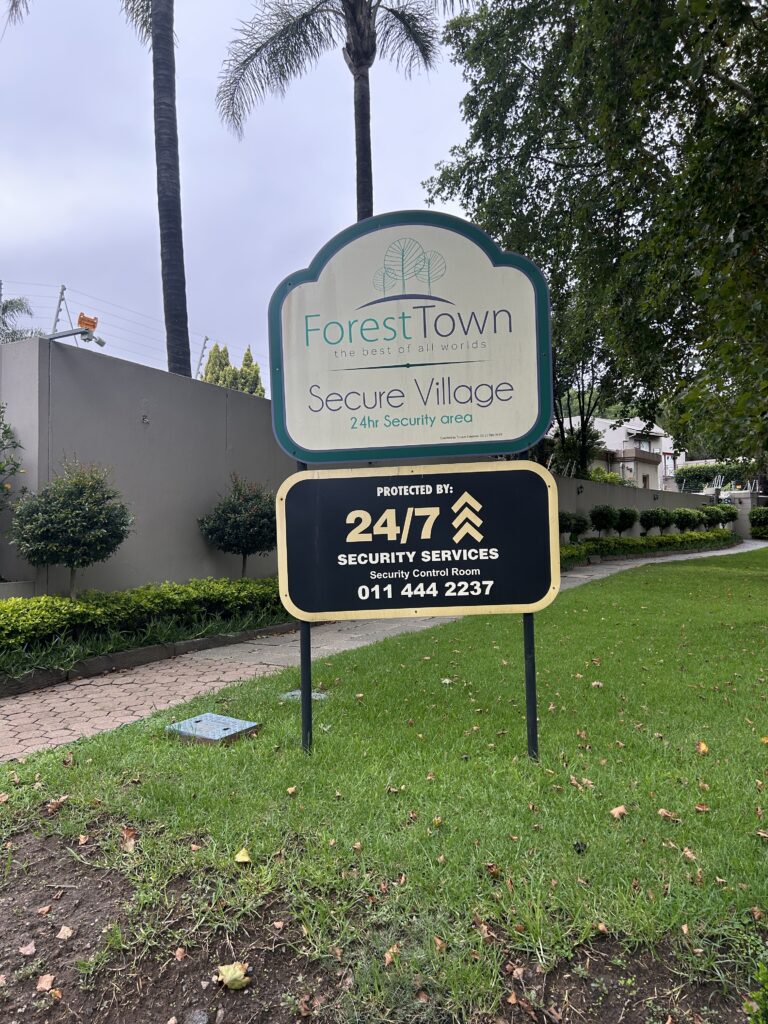
Sign designating Forest Town – the community where we live – as a secure community.
In my mind, the security measures in place is a commentary on the potential for unrest in South Africa. The neighborhood we live is in a relatively high-end residential area with nice homes that are all well fortified. These fortifications are there for a reason….real or perceived. These homes are owned by both black and white South Africans….so it is not all about race….it is about the potential for incursions on to the property. We also live in a gated apartment complex with a 24-hour guard at the gate.
In the Philippines, our apartment building had a guards at the entrances as did most stores but the feel was entirely different. I perceived that these guards where there to open the door for you vs. guarding you against an intruder.
Another thing in the Philippines, you rarely saw was a police vehicle. There were traffic enforcers (traffic regulators) at busy intersections to direct traffic because there are no stop signs or lights. As I said, there were very few police in cars roaming the highways or streets. Here in South Africa there are police vehicle s all over the place….it is rare to drive any distance without seeing police cars parked or driving around.
Perhaps one reason for the cautious approach to security in South Africa is that the unemployment rate country wide is over 32% (with the unemployment for ages between 18 -25 as high as 50%) which gives many people few options to support themselves other than to steal.
In the US, we think we have a high unemployment rate in the US if the rate is 6% to 8%. In the Philippines, the unemployment rate is between 3-4% in the metro areas with unemployment higher in the rural areas of the Philippines which is why most young people move to the cities.
The Church’s efforts through the BYU Pathways program is to provide a college degree/certification to its membership and many local non-members since Church membership is not a requirement to participate in the BYU Pathways Program – more on this in a future blog post.
Thought of the Day: You can’t control what you can’t control.
Scripture of the Day: 2 Nephi 31:3 “For my soul delighteth in plainess…for he speaketh unto men according to their language, unto their understanding.”
